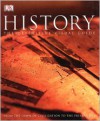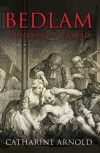 The Rushlight List - A novel for each and every country
The Rushlight List - A novel for each and every country This was a slow read. Five-hundred pages shouldn't have been too daunting to a regular reader of epic fantasy, but I have to say that after the first few it was clear to me that Oscar and Lucinda was no page-turner. However, I was determined to persevere - not only is this the Rushlight selection for Australia, but I'd also had it recommended by tutors Will Eaves and China Miéville as being thematically relevant to a project I'm working on called The Glass Architect.
Is Oscar and Lucinda a book about Australia? Not really. Is it set in Australia? Well, mostly. The story follows two children - duh, Oscar and Lucinda - through to their meeting in young adulthood. Both have experienced death early in life. Both have developed gambling habits - "one obsessive, the other compulsive." They are damaged, flawed, often dislikeable individuals, drawn together by this one shared passion - or weakness.
Before reading, I had understood Carey's Booker Prize winner to be about a man and a woman transporting a glass church across Australia for a bet. What I didn't realise was that, although this is indeed the part that people remember most - there's a film, which I haven't seen, but I'm guessing it focusses most heavily on this aspect of the story - this plotline doesn't come to the surface until the last hundred pages of the book. There's plenty of foreshadowing and pre-construction, but this doesn't change the fact that most of the book reads as slightly directionless. Even when the two titular protagonists' lives begin to intertwine, we are given little indication of what this portends. Had I approached the book with no prior knowledge, I would have been bemused and probably rather bored by the lengthy descriptive passages with no obvious purpose.
The biggest and most obvious defect of the book was, for me, the author's excessively minute descriptions of his more peripheral characters. I often felt that he was engaging in unnecessary padding, and sometimes even using these passages to avoid the business of progressing the story. But this is precisely why I'm glad I never leave a book unfinished. Much - though not all - of what I had considered irrelevant does eventually present a purpose, and we see by the end how many of those characters besides Oscar and Lucinda - Dennis Hassett, Mr d'Abbs, the unforgettable Mr Jeffris - are in fact integral to the story.
Peter Carey's prose is consistently sublime, and the sheer amount of crafting that has gone into this book is evident. It seems too easy to go for the glass church metaphor, but I'm going there anyway: Oscar and Lucinda is a colossal, fragile work, built on a hundred contingencies, constantly threatening to collapse under the weight of its own improbability. The shocking gravity of its conclusion, which I don't want to spoil here - because, in case you were wondering, you should definitely read this book - is dependent upon the multitude of set pieces that have been painstakingly put in place over the sedate, sometimes sluggish course of 400 pages.
In this sense, Oscar and Lucinda is a wager. The stakes: your time and engagement. Whether the return is ultimately worth it depends upon the reader. You may find yourself questioning whether the story is really going anywhere. You might lose your faith in it entirely. My advice would be to stick with it to the end; leave before the game's over and you'll only wonder what you missed.
The Rushlight List - A novel for each and every country















